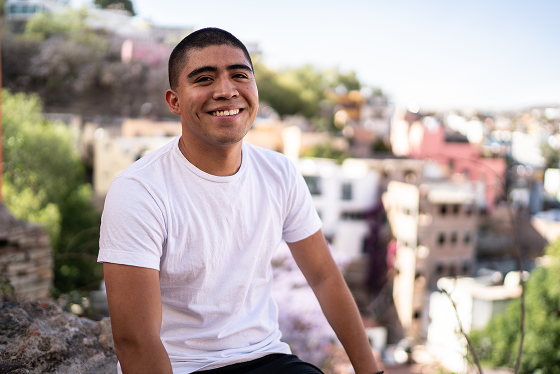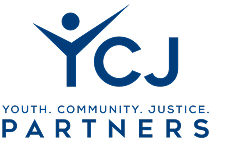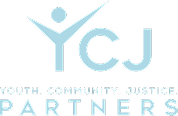Therapy
TRANSITIONAL AGED YOUTH + PROBATION
Transitional Aged Youth (TAY)
Most young people successfully transition from adolescence to adulthood with the support of family, schools, and community. However, for those aging out of foster care, involved with the justice system, living with disabilities or chronic illnesses, identifying as Lesbian, Gay, Bisexual, Transgender, Queer, and Questioning (LGBTQQ), or being undocumented, among other circumstances, this transition can be more challenging.
As a credentialed school psychologist and licensed psychologist, Dr. Gerchow can tailor services to youth’s psychoeducational profiles.

Read Dr. Gerchow’s article, “Understanding and Addressing the Needs of TAY” in the Summer 2023 issue of The California Psychologist.
WHO ARE TAY?
- TAY encompasses a broad demographic spanning from older adolescence to young adulthood (18-26 years old), though some definitions include young adults up to age 27, particularly if they are experiencing homelessness.
- In California, there are approximately 5,500,000 TAY.[1]
- The TAY population includes diverse subgroups of youth, with varying physical and behavioral health diagnoses, educational backgrounds, and socioeconomic statuses.[2]
[1] Mental Health Services Oversight and Accountability Commission. (2019).
[2] Khetarpal, S.K., Auster, L.S., Miller, E. et al. Transition age youth mental health: addressing the gap with telemedicine. Child Adolesc Psychiatry Ment Health 16, 8 (2022). https://doi.org/10.1186/s13034-022-00444-3
More About TAY

The TAY population requiring additional supports and opportunities may be “disconnected” based on the following descriptors:[1]
- Are academically off-track or have dropped out of high school
- Have had contact with public systems (foster care, juvenile justice, criminal justice, or special education)
- Are homeless or marginally-housed
- Have a disability or other special need (including substance abuse)
- Are undocumented
- Are immigrants and/or English Learners; and/or
- Are Lesbian, Gay, Bisexual, Transgender, Queer and Questioning (LGBTQQ)
Challenge: Our systems of care are typically designed to serve “traditional” pediatric and adult patients, rather than TAY. Barriers to care are magnified for minoritized youth due to structural inequities, often leaving too many TAY without a dedicated “home” for their care. Fortunately, counties across California and the U.S. are increasingly recognizing the need for programs specifically tailored to TAY.
[1] “Disconnected Transitional Age Youth.” (2013). Retrieved from http://oewd.org/ftp/oewd_meetings/media/docs/WorkforceDevelopment/wisf/youth%20council/2013/11.6.2013/TAY%20Handout%20-%20Who%20Are%20Disconnected%20Youth-TAY.pdf
Uplifting and strengthening TAY with compassion, realness, and candor
Dr. Gerchow has supported TAY in clinical, supervisory, and administrative roles. As a psychologist at Contra Costa County’s Juvenile Hall, Dr. Gerchow provided direct behavioral health services to more than one hundred TAY. In her role as Supervising Psychologist for the Trauma Recovery Center, Dr. Gerchow guides clinicians in how to approach and design clinical interventions for TAY recovering from interpersonal violence.
As Alameda County’s Director of Juvenile Justice Health Services, Dr. Gerchow collaborated with behavioral health, probation, and education partners to strategize and implement services for TAY returning to county youth detention facilities per Senate Bill 823 (SB 823, closure of the Division of Juvenile Justice). When working with TAY, Dr. Gerchow’s approach is premised on authenticity, candor, humor, and abiding compassion.
Our TAY Services May Include:
Vocational development
We know that supporting TAY vocational identities can be a therapeutic tool, so we support conversations and collaborations that promote their vocational development. We also help TAY to counter-narrate any distortions they feel about their vocational potential.
Re-entry focused therapy
For those exiting custody, we focus on the uniquely challenging—and often exhilarating—re-entry experience. We may address a range of issues including feelings of overwhelm, potential triggers, social isolation, the loss of institutional support, and stigma. If needed, we also discuss safety concerns in partnership with the probation officer or other appropriate staff member. Treatment may include rehearsal or application of skills previously learned in probation department evidence-based programs (e.g., Aggression Replacement Training); CBT, DBT, or ACT techniques; narrative therapies; and family engagement (family as defined by the youth).
Practical and Emotional Support
By closely collaborating with case managers, we address the pressing needs of TAY such as finding stable housing, securing employment, and obtaining necessary legal and identity documents. Beyond practical needs, we offer a “home” for emotional expression where TAY can safely share their experiences and engage in healthy self-soothing techniques.
We stand by our youth through ups and downs — whether they lose a job, fail a test, or face setbacks. We approach the youth with compassionate energy and the mindset of a scientist practitioner trying to understand the thoughts, feelings, and circumstances that led to an unfavorable outcome—and how such an outcome can be prevented moving forward.
TESTIMONIALS
Dr. Gerchow’s tireless service, passion, and resourcefulness in Behavioral Health is unmatched. As a representative of Law Enforcement leadership, I especially appreciate and respect her prowess and desire to provide exceptional care in the support of both underserved populations, and Law Enforcement alike.
Probation Manager, Contra Costa County Probation Department
Christine is an extremely intelligent, charismatic and compassionate leader who regularly went the extra mile as a psychologist at Contra Costa County’s Juvenile Hall. Her work was revered and respected by patients and colleagues from across our county’s education, medical, legal and probation agencies. She was a treasured team member and will make for the best trainer and consultant!
Former Charge Nurse, Contra Costa County Juvenile Hall


